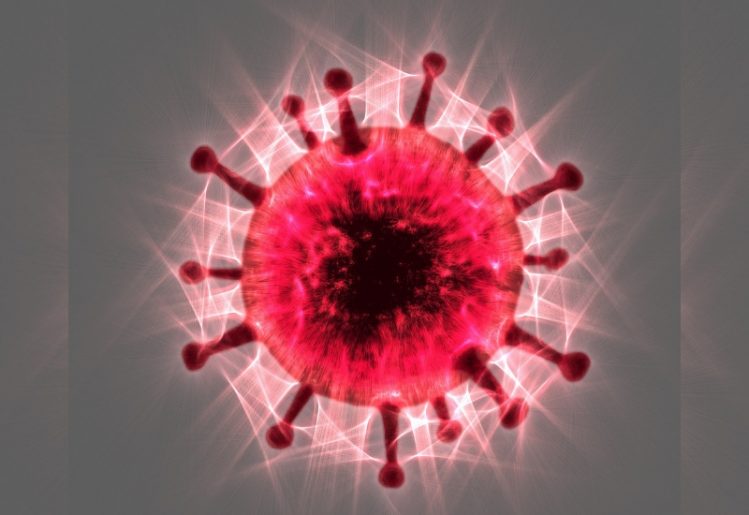As new research reveals a link between vitamin D and COVID-19, finding natural ways to get sufficient levels of vitamin D becomes more vital to our health.
Why is Vitamin D Important?
In some areas of research, the to endeavor to prove the efficacy of vitamin D in promoting physical and emotional health is still underway. For instance, we know that there’s a relationship between depression and vitamin D, but research still seeks to confirm that vitamin D is effective in boosting the mood.
Even if it does not turn out to be useful in treating depression, vitamin D has been proven to benefit human health in a variety of other ways. Here are just a few ways that getting sufficient daily doses of vitamin D can help people live healthier and happier lives.
Protects Against Viruses
 In a recent Japanese study, it was found that supplemental vitamin D drops administered to school-aged children reduced their likelihood of developing the flu and other wintertime illnesses. This led the researchers to confirm that the vitamin plays an important role in building up or maintaining the immune system.
In a recent Japanese study, it was found that supplemental vitamin D drops administered to school-aged children reduced their likelihood of developing the flu and other wintertime illnesses. This led the researchers to confirm that the vitamin plays an important role in building up or maintaining the immune system.
Positively Impacts Multiple Sclerosis
In simple terms, multiple sclerosis (MS) is the result of the immune system attacking the central nervous system. Although there is no cure, there have been some breakthroughs in developing treatments that reduce the symptoms. One study found that maintaining a sufficient supply of vitamin D can help prevent individuals from developing this condition. Additionally, those who already have MS can reduce the severity or frequency of symptoms by taking vitamin D supplements.
Reduces Certain Cancer Risks
Studies have found that the risks of developing colon, prostate and breast cancer are decreased by getting enough vitamin D. Those risks are further lowered when the supplement includes calcium.
Protects the Bones
The primary role of vitamin D is to help protect against bone-density loss. As people age, their bodies lose the ability to create more bone to replace that which is lost naturally over time. Increasing your intake of vitamin D can help combat this problem, which is why those suffering from osteoporosis and osteomalacia are advised to get more vitamin D.
The Link Between Vitamin D and COVID-19
Reviewing past reports from various countries around the world has led researchers to find that mortality rates among hospital patients are higher in those suffering from a vitamin D deficiency. They also found the opposite to be true, meaning that patients with higher vitamin D levels were more likely to recover from their illness. These previous findings have led researchers to establish a link between vitamin D and COVID-19 in a more recent study.
The new study found that vitamin D can help prevent an overload of cytokines, which are released by the immune system and attack healthy cell tissue in the often-mentioned “cytokine storm” associated with serious COVID-19 cases. Since these are the first findings of this kind, more research is needed to confirm the effect that of vitamin D on immune functioning.
An observational study in the U.K. found that that there was also a significant instance of vitamin D deficiencies in hospitalized COVID-19 patients. The researchers in that study also confirmed that patients lacking sufficient amounts of the vitamin were more likely to die from the virus.
Here in the United States, a Northwestern University study found that an insufficient intake of vitamin D raised the risks of contracting COVID-19 by 17 percent. There was a 14 percent risk of getting the virus for those who had good levels of vitamin D. Meanwhile, researchers in Louisiana and Texas found that 11 of the 20 patients admitted to hospital ICU wards for COVID-19 also had insufficient vitamin D. Conversely, there were only four patients with optimal vitamin D levels admitted for COVID-19. An Indonesian study added more observational proof that there was a link between vitamin D levels and the novel coronavirus. They reported that most of the 780 COVID-19 fatalities also showed evidence of insufficient vitamin D levels.
Natural Ways to Get More Vitamin D
While more research is needed to confirm that vitamin D does have a positive effect in the treatment of COVID-19, getting more vitamin D is still beneficial to your health. Here are a few ways you can naturally boost your vitamin D intake.
Spend More Time Outdoors
Exposure to the sun is the best way to get more vitamin D. While too much exposure to the sun should be avoided, getting sun exposure in short bursts will help you maintain your vitamin D levels for longer.
Eat More Seafood
 Adding more seafood to your diet is another good way to boost vitamin D levels. In particular, fatty fish, such as tuna, oysters, shrimp, sardines and anchovies, provide higher amounts of the nutrient. Even wild-caught salmon provides a hearty supply of the nutrient.
Adding more seafood to your diet is another good way to boost vitamin D levels. In particular, fatty fish, such as tuna, oysters, shrimp, sardines and anchovies, provide higher amounts of the nutrient. Even wild-caught salmon provides a hearty supply of the nutrient.
Take a Daily Supplement
If you are concerned that you’re not getting enough vitamin D through sun exposure and your diet, you can take a supplement. A daily vitamin formula with a sufficient supply of vitamin D can help you boost your exposure to healthier levels.
Look for Fortified Foods
Vitamin D is also added to certain foods that you can buy in any grocery store. In addition to fortified cereals, you can also find vitamin D in orange juice, milk, yogurt, tofu and milk alternatives. It’s important to note, however, that many fortified foods contain vitamin D2, not the more ideal form of vitamin D, which is vitamin D3. As you shop, be sure to check the ingredient lists of each product to ensure it is a good source of vitamin D.

